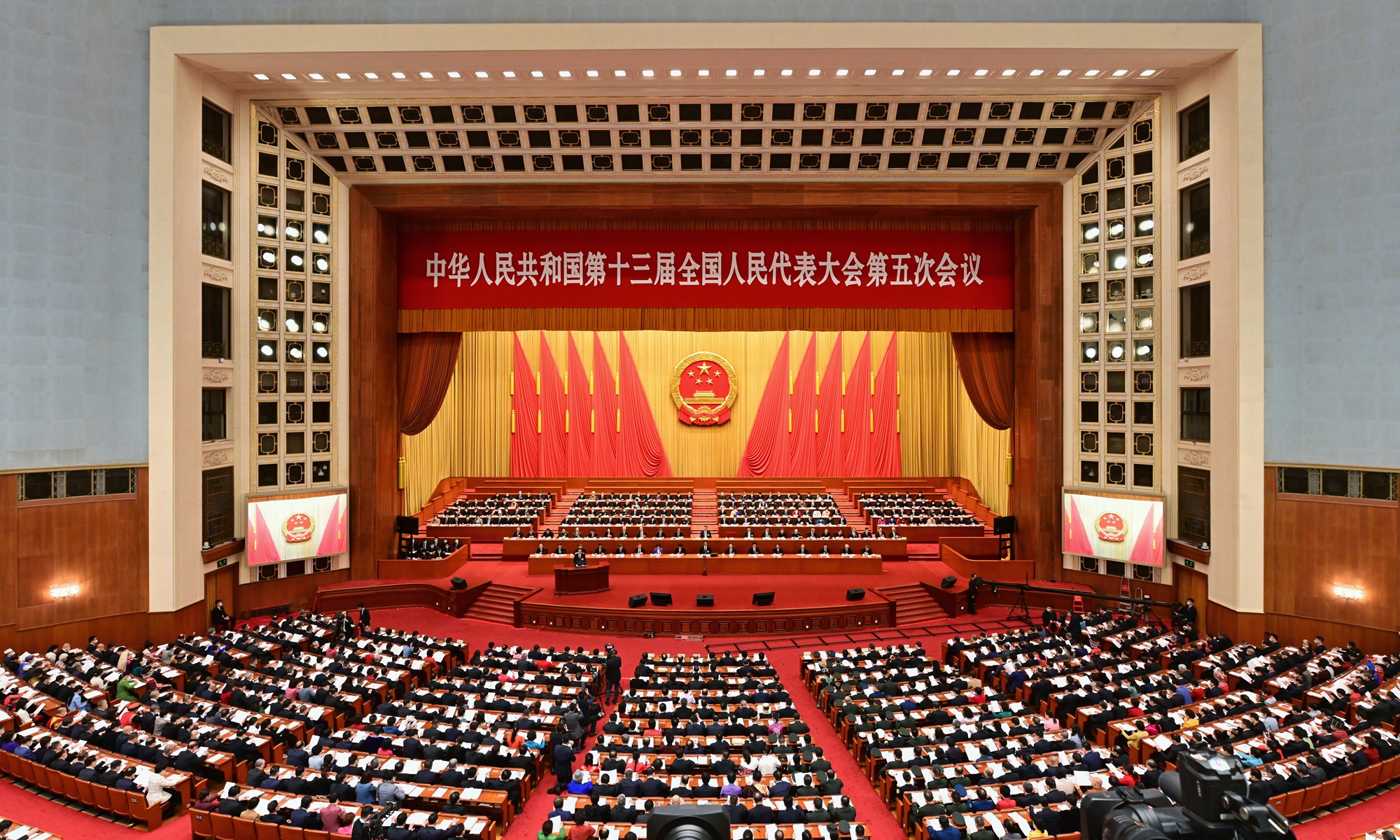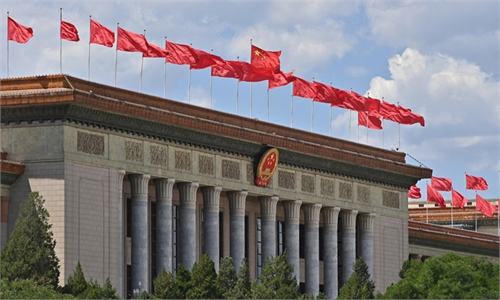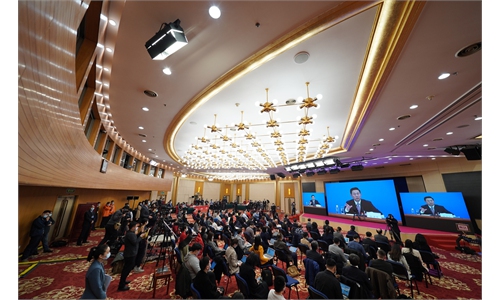
The fifth session of the 13th National People's Congress (NPC) opens at the Great Hall of the People in Beijing, capital of China, March 5, 2022.Photo:VCG
Editor's Note:China's ongoing two sessions, the annual gatherings of the National People's Congress and the National Committee of the Chinese People's Political Consultative Conference, offer international observers a window into the idea and practice of whole-process people's democracy. How does this style of democracy fit into China's reality? How does it differ from the US-style democracy? The Global Times interviewed two experts on their understanding of this concept.
Martin Jacques, a former Senior Fellow at the Department of Politics and International Studies at Cambridge University
I think that a fundamental difference is that the way Western democracy works is everything is geared to the national elections, mainly the top election, not the local election. Sometimes local elections are also significant, but not as significant as the top elections. Once somebody is elected, people don't have any say, except in the opinion polls.
If things are going against the government in the opinion polls and so on, they obviously take notice of that. Opinion polls are a form of feedback but you've basically got, what some might call, an "electoral dictatorship". Everything is about the elections and getting returned at the election and so on. Electoral democracy doesn't breed a close relationship with the people and government, because the people are only called upon to be involved whenever to make elections take place.
I think the Chinese approach is different in that there's a very important consultative component in the way China operates. The National People's Congress is dissed in the West as though it's just a rubber stamp. I think that is a travesty actually of what the significance of the NPC is because it's composed of people, not just at a representative level, but also at an expert level.
It's composed of people who know a lot and they work in commissions and committees and so on over a long period, drawing up and also advising and so on. So the way Chinese democracy works - this consultative approach - is the way in which, instead of a bunch of politicians who don't really know much about anything, to be frank, a body of expertise that is in communication with the government constantly in one way or another.
That is very important because what it means is that when China introduces laws or reforms or policies or whatever, they are already highly considered. They're not suddenly done because public opinion is shifted this way or that. They're based on a really serious body of work and discussion. And I think it's much more deliberative. It's much more consultative than the way Western democracy is. I'm not saying expertise isn't involved in Western democracies, it is, but not in that kind of ongoing consistent way.
Yury Tavrovsky, head of the "Russian Dream-Chinese Dream" analytics center of the Izborsk Club
The very concept of "democracy" was born in ancient Greece, was assimilated by Christianity, and through it entered Marxism and it turned into "party democracy". The desire to apply the principles of Western democracy in China is reminiscent of the proverb "to stretch the legs of a duck, to trim the legs of a crane." The weakening of strictly centralized control over society for the sake of individual rights led to tragic consequences. The development of forms of democracy, taking into account traditions and the current state of society, has been in the field of view of Chinese Communists since the time of Yan'an, where Mao Zedong developed the concept of "people's democracy". The importance of this task is evidenced by the decisions of the CPC in recent years. The concept of whole-process people's democracy is an important step forward. It is an integral part of the concept of "socialism with Chinese characteristics", which is designed to ensure the transformation of China into a powerful, modern, democratic and socialist state by 2049. In essence, the concept of "whole-process people's democracy" is "democracy with Chinese characteristics". It will be developed at the theoretical level in the coming years and implemented at the practical level in accordance with the economic and social development of China, as well as external conditions.
The successful development of China based on the concept of "socialism with Chinese characteristics" is perceived as a deadly threat by America with its concept of "capitalism with American specifics", the foundation of which are the concepts of "democracy", "human rights", etc. The US fears the growing influence of "socialism" as an effective next model of the world order. But they do not understand the meaning of the term "with Chinese characteristics ". In the US, and in other countries, it is impossible to copy the Chinese way. They have different foundations of civilization and historical traditions.


